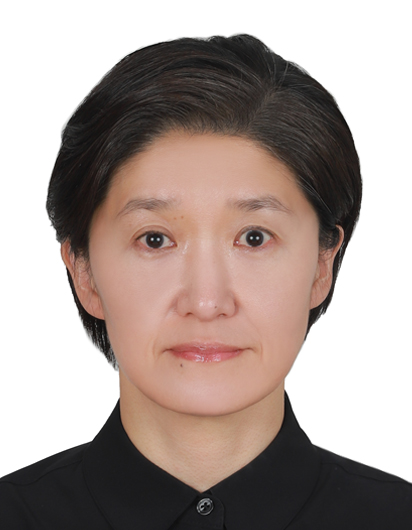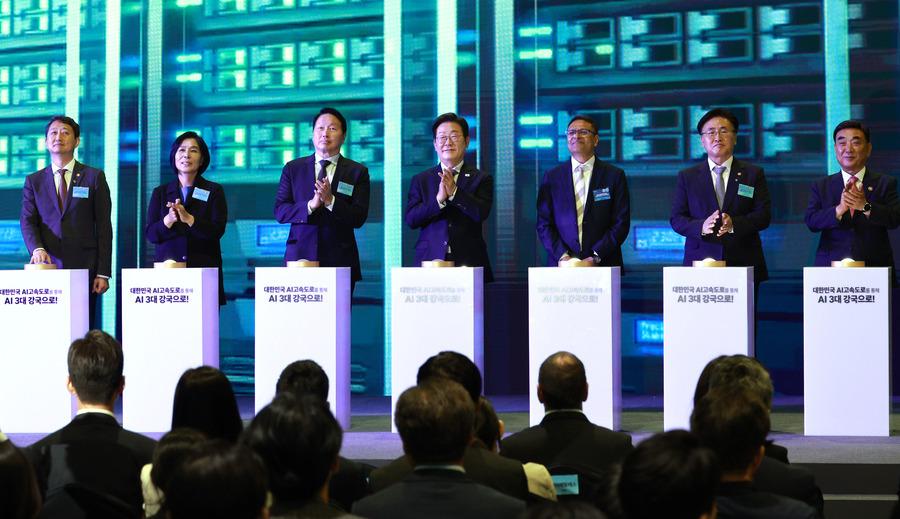
- #South Korea
- #Technology & Cybersecurity

Key Takeaways:
- The contests aren't for colonies but for computational supremacy, quantum cryptography, and influence over the norms that will govern our online world.
- The Digital Bill of Rights must be embedded into regulatory systems, legal frameworks, and public institutions.
- Sovereignty must act not as a barrier, but as a strategic filter: protecting national resilience while fostering scalable innovation and open exchange.
South Korea’s ascent from post-war devastation to global industrial leader is one of history’s most striking transformations. With strategic governance, public-private collaboration, and a relentless focus on human capital, the nation has become synonymous with innovation. But the nature of power is changing. Sovereignty—once tied to territory, treaties, and troop movements—is now encoded in algorithms, cloud infrastructure, and digital standards.
Historically anchored in sectors such as automotive production, semiconductor manufacturing, and shipbuilding, Korea now pursues leadership across a spectrum of emerging technologies.
We are entering a new era—one that mirrors the 15th-century Age of Discovery. Today’s expeditions, however, are digital. The contests aren't for colonies but for computational supremacy, quantum cryptography, and influence over the norms that will govern our online world. South Korea, standing at a strategic inflection point, must decide whether to follow the tide or chart its own course across this vast new frontier.
A New Frontier: Korea’s Technological Awakening
Recognizing the urgency of this shift, South Korea has identified twelve key domains to drive its technological future—ranging from AI and bio-health to 6G and aerospace. Backed by ₩30 trillion in public investment, this initiative isn’t merely a plan—it’s a national pivot toward sovereign innovation.
Among the most visible is the KoLLM initiative, a large language model tailored to Korea’s linguistic and cultural nuances. Far from being a simple tech project, KoLLM is emblematic of a broader ambition: to build AI systems grounded in national values, and capable of public deployment in sectors like healthcare, law, and urban analytics.
In biotech, Korea is rapidly evolving into a regional hub. Investments in synthetic biology, genomic diagnostics, and neurotechnology reflect demographic and strategic needs. Simultaneously, efforts in Urban Air Mobility (UAM), solid-state batteries, and autonomous fleets mark a bold reimagining of mobility.
The nation's ambitions extend skyward with satellite internet constellations and lunar missions—challenging the dominance of foreign platforms and cementing sovereign infrastructure. The “Manufacturing Renaissance” and strategic AI chip development under the K-Semiconductor Belt reinforce Korea’s strength in industrial tech and its resolve to secure digital independence.
Digital Sovereignty and the Rise of a Digital Bill of Rights
Traditional geopolitical influence was built on physical boundaries: airspace, maritime zones, and borders. But in today’s digital realm, sovereignty is shaped by who owns the platforms, writes the algorithms, and governs the infrastructure of information.
South Korea’s pursuit of technological sovereignty reflects this shift—from physical defense to digital governance. But sovereignty in the digital age must also champion the rights and dignity of its citizens. That’s why the government's Digital Bill of Rights, introduced in 2023, marks a watershed moment.
This charter outlines the foundational principles for a just and inclusive digital society. It affirms the:
- Right to access and control personal data
- Protection from algorithmic bias and manipulation
- Option to request non-digital alternatives in public services
- Safe digital environments, especially for youth and vulnerable populations
- Ethical development and use of emerging technologies
- Fair competition and protection of digital assets
Korea’s approach reflects a growing global movement toward digital constitutionalism—a recognition that rights must be redefined in the context of ambient AI, ubiquitous surveillance, and borderless platforms.
Yet codification alone is insufficient. The Digital Bill of Rights must be embedded into regulatory systems, legal frameworks, and public institutions. Korea must also continuously adapt:
- How will privacy be protected amid biometric tracking and predictive AI?
- Can algorithmic transparency coexist with proprietary innovation?
- What safeguards exist for digitally excluded populations?
Korea is the third country to commercialize quantum cryptography telecommunication and is actively participating in global quantum cryptography standard setting. By leading this frontier, Korea has the opportunity to set not only technical standards but also moral ones—and that is where the nation can truly define its technological sovereignty.
Autonomy vs. Openness: A Paradox at the Core
Korea’s sovereignty-centric strategy introduces a dilemma faced by many digitally advanced economies: the tension between protecting infrastructure and enabling collaboration.
An excessive focus on autonomy risks:
- Fragmenting international research ecosystems
- Restricting cross-border innovation and talent mobility
- Disrupting startup access to essential foreign tools and cloud infrastructure
- Slowing progress on shared governance frameworks for AI and emerging tech
These risks are real—especially for Korea, whose semiconductor, biotech, and AI sectors are deeply intertwined with global value chains. Sovereignty must act not as a barrier, but as a strategic filter: protecting national resilience while fostering scalable innovation and open exchange.
Strategic Navigation Between Giants
South Korea’s digital position is shaped by its strategic relationships—with the United States on AI safety and cybersecurity, and with China through cautious manufacturing engagement. Through multilateral forums like the OECD, APEC, and ITU, Korea bolsters its soft power and positions itself as a convening force in global tech governance.
The ramifications of this strategic positioning extend far beyond technology. Korea’s digital strategy now intersects with international trade, investment flows, product standards, and regulatory regimes. In effect, we are confronting a new era of trade conflict, where digital standards and infrastructure increasingly define competitive advantage and geopolitical influence.
This balance allows Korea to assert sovereignty while remaining an active participant in global norm-setting. But the trade-off remains: how much openness can ecosystems afford—and how much sovereignty can systems sustain—before collaboration begins to unravel?
Launching the Fleet: A National Mandate for the Digital Century
The global contest over emerging technologies mirrors the intensity of history’s great voyages. But today's fleet is digital—composed of neural networks, quantum processors, sovereign cloud platforms, and ethical standards.
Korea must launch its fleet into this vast ocean—not merely prepared for battle, but ready to lead. This is the 21st-century Age of Discovery, where data flows replace sea currents and sovereignty is coded in infrastructure and trust.
Strategic Questions for Korea’s Digital Future
As the landscape evolves, South Korea’s choices will define not only its technological profile, but its democratic soul. Some key questions must guide its journey:
- Can Korea maintain autonomy without isolating itself from global excellence?
- Will sovereignty enable or inhibit inclusive innovation?
- What governance tools are needed to protect rights in fast-moving digital markets?
- Can Korea lead with ethical foresight—not just technical capacity?
- Will its digital rights become a model for other democracies?
In this new digital age, sovereignty is no longer claimed—it is engineered. The world won’t wait. Korea must decide: will it navigate the currents, shape the rules, or be swept aside?

Ji Won Joo is the founding partner of Camp Cloud and currently chairs the AI-ICT Experts’ Committee under the Presidential Advisory Committee on Science and Technology. She has served on the Presidential Committee on the Fourth Industrial Revolution and held leadership roles at SK Telecom, GS Retail, Boston Consulting Group, and POSCO. She holds an MBA from the Wharton School, University of Pennsylvania, and a Ph.D. from Seoul National University.


